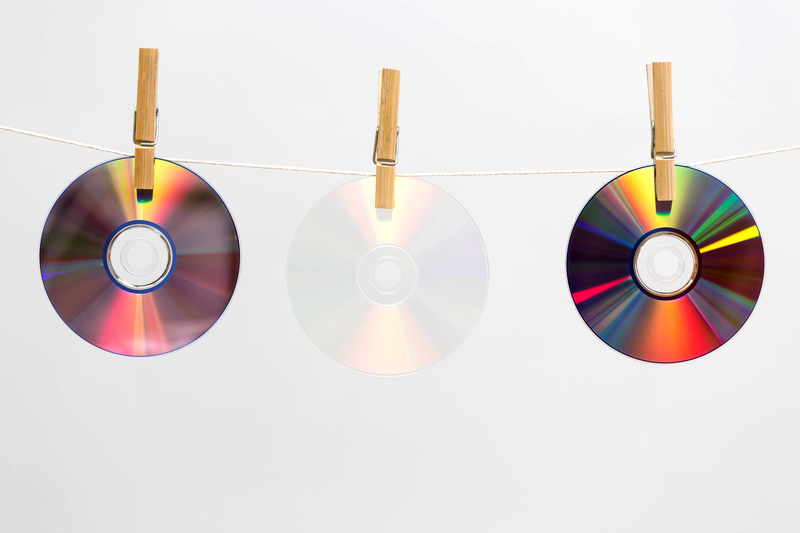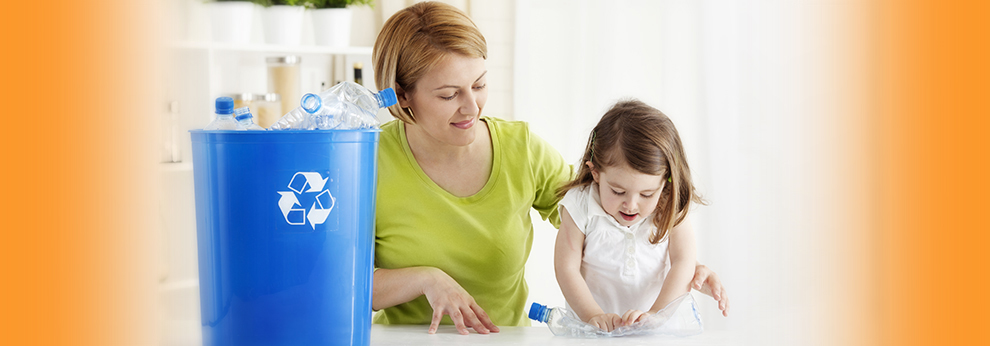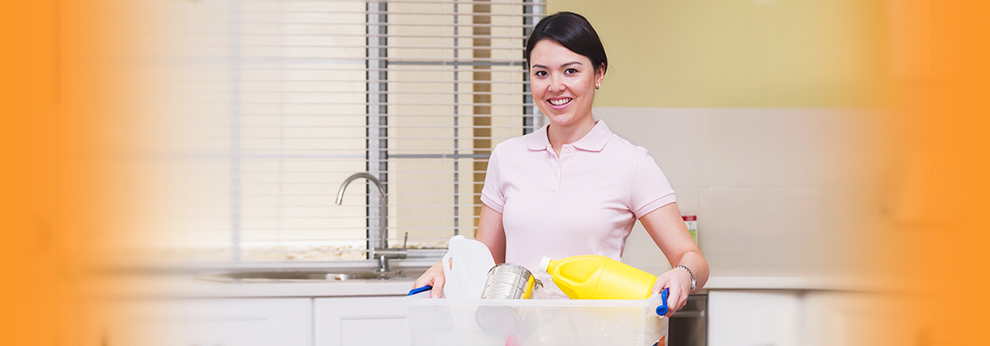Implementing Recycling Chores for Kids at Home
Posted on 23/08/2025
Implementing Recycling Chores for Kids at Home: Strategies, Benefits, and Fun Ideas
Are you looking to nurture eco-friendly habits in your children? Involving kids in recycling chores at home is an excellent way to teach environmental responsibility while encouraging life skills. Implementing recycling chores for kids at home promotes teamwork, shapes positive habits, and helps develop a greener future. In this comprehensive guide, you'll discover practical steps, creative tips, and proven strategies for making recycling fun, educational, and age-appropriate for all children.
Why Teach Kids About Recycling?
Children are naturally curious and eager to help. By introducing recycling responsibilities for children, you:
- Foster environmental awareness and stewardship.
- Develop organizational and decision-making skills.
- Encourage teamwork and shared chores.
- Promote lifelong eco-friendly habits.
- Reduce household waste effectively.
Teaching kids how to recycle at home has never been more relevant. With mounting concerns over climate change and waste, every family has a role to play in shaping sustainable communities.

Getting Started: Setting Up a Home Recycling System
1. Understand Your Local Recycling Rules
Before implementing recycling tasks for kids, research which materials your municipality accepts. Check your town's waste management website for:
- Accepted recyclables (plastics, paper, glass, metals, etc.)
- Recycling collection schedules
- Special drop-off guidelines for items like batteries or electronics
Kids love sharing knowledge -- so involve them right from the start by discussing local rules!
2. Designate Recycling Stations
An organized space makes recycling chores for kids easier to follow. Choose accessible spots in your kitchen, garage, or laundry area for recycling bins. For best results:
- Use clearly labeled bins or color-coded containers.
- Include pictures for young children or pre-readers.
- Keep bins at child-friendly heights.
3. Gather Necessary Supplies
Ensure you have the right recycling bins, bags, or boxes. Consider extra items like:
- Gloves for handling recyclables safely
- Spray bottles for rinsing containers
- Easy reference charts or posters about recyclable materials
4. Lead by Example
Children mirror adult behavior. Show commitment to recycling by:
- Always recycling in their presence
- Talking about why recycling matters
- Celebrating when your family reduces waste together
How to Assign Recycling Chores to Kids
Age-Appropriate Task Ideas
A crucial step in making recycling chores kid-friendly is matching chores to children's age and ability.
-
Preschoolers (3-5 years):
- Sorting plastic, paper, and cans by color or material
- Placing paper products in the correct bin
- Rinsing out plastic bottles (with supervision)
-
Elementary school kids (6-9 years):
- Taking bins to the curb or centralized collection point
- Double-checking family members' recycling habits
- Creating posters or reminder signs for the home
-
Preteens and teens (10+ years):
- Researching new local recycling guidelines
- Managing the weekly recycling schedule
- Helping with composting or organizing e-waste
Creative Chore Chart Ideas
Make recycling responsibilities at home engaging by designing a colorful, interactive chore chart. Use magnets, stickers, or digital tracking apps to:
- Assign daily or weekly recycling jobs
- Track completed tasks and progress
- Allow kids to exchange chores or take on special recycling projects
Make It a Family Effort
Implement a "recycling team leader" role each week so every child gets a turn managing the process. This encourages:
- Responsibility and leadership skills
- Accountability and family participation
- Healthy, eco-conscious competition
Tips to Make Recycling Chores Fun and Educational
When involving children in recycling chores, creativity goes a long way. Turn routines into opportunities for discovery and fun!
1. Play Sorting Games
Turn sorting recyclables into a challenge. Time kids to see how fast they can sort items into correct bins, or play "recycling detective" to spot anything that's in the wrong basket.
2. DIY Upcycling Projects
Choose used materials from your collection to create fun crafts and upcycled art. Try:
- Making pencil holders from tin cans
- Building bird feeders from plastic bottles
- Painting glass jars for gifts
*This not only encourages creativity but also demonstrates how recycling can lead to new uses for old objects.*
3. Read Books and Watch Videos About Recycling
Educate kids about the impact of recycling chores with stories and documentaries. Great choices include:
- The Adventures of a Plastic Bottle
- Why Should I Recycle?
- YouTube channels focused on recycling for children
4. Celebrate Recycling Milestones
Recognize your family's efforts by tracking progress on waste reduction and recycling goals. Offer small rewards or host special "eco-parties" when you reach a major milestone.
Strategies to Build Successful Recycling Habits
Be Patient and Encouraging
Consistency is key when establishing recycling chores for children at home. Kids may need gentle reminders or visual aids. Instead of criticism, use mistakes as learning moments.
Incorporate Recycling into Daily Routines
Attach recycling chores to activities already in place -- for example, clearing the table after meals, picking up after play, or taking out the trash.
Connect Recycling to the Real World
Help children understand the bigger picture by:
- Visiting local recycling centers or green spaces
- Participating in community clean-up events
- Exploring news stories about the impact of plastic waste
Use Visual Cues and Reminders
Place posters or infographics near recycling stations. Use rhymes, songs, or catchy phrases to help kids remember what goes where.
Overcoming Common Challenges in Recycling With Kids
Handling Mess or Contamination
Recycling can get messy, especially with young children. To prevent sticky or contaminated items:
- Supervise rinsing out bottles or containers
- Use lids on bins to discourage curious pets or toddlers
When Kids Lose Interest
If enthusiasm wanes, rotate chores or introduce a new activity, like a home recycling contest or creative upcycling project. Pair recycling chores with music or a favorite podcast for added energy.
Busy Family Schedules
Set realistic expectations. Even small habits, like recycling snack wrappers during homework time, add up over time. The goal is consistency, not perfection.
The Important Benefits of Recycling Chores for Kids
There are countless reasons why encouraging recycling as a household chore for kids matters:
- Protecting the environment: Reduces landfill waste and conserves resources.
- Setting positive examples: Kids are more likely to grow into environmentally conscious adults.
- Building self-esteem: Contributing to the family and planet boosts confidence.
- Encouraging responsibility: Routine chores teach children accountability and teamwork.
- Supporting community involvement: Families who recycle often participate in wider eco-friendly campaigns.

Frequently Asked Questions (FAQs) About Recycling Chores for Children
What if my child makes mistakes?
Mistakes are part of the learning process! Revisit instructions, use visual guides, and provide gentle reminders. Celebrate progress, not perfection.
How can I keep older kids interested?
Involve older children in planning, research, and leadership activities. Give them a say in chore rotations, allow them to design posters or apps, or challenge them to find new ways to reduce waste.
Is it safe for kids to handle recyclables?
Always supervise young children, especially when dealing with sharp or hazardous items. Provide gloves and encourage safe handling. For hazardous items like glass, adults should take the lead.
What if my community has limited recycling options?
Focus on what can be recycled, and consider new initiatives like composting at home or organizing drives for hard-to-recycle items. Every effort counts!
Final Thoughts: Raising Eco-Responsible Kids
Implementing recycling chores for kids at home is a powerful step towards a cleaner, greener future. By making recycling routines fun, educational, and family-centered, you'll raise children who value sustainability, teamwork, and responsibility.
Start today! Gather your children, set up your first recycling station, and celebrate every small victory together. The skills and values you foster now will last a lifetime -- for your home, your community, and the world.
Quick Checklist for Parents:
- Set up clear and easy-to-access recycling stations
- Use engaging visuals and kid-friendly labels
- Assign age-appropriate recycling chores
- Incorporate games, crafts, and books about recycling
- Lead by example and reinforce habits regularly
- Celebrate progress as a family
For more tips on teaching kids to recycle at home and creative eco-friendly family living, explore our related articles and resources below.
Latest Posts
Inspiring School Recycling Plans That Make a Difference
Making the Case for Professional Waste Clearance Services
How to Optimize Your Skip Hire Strategy
Historical Highlights: How Different Societies Managed Waste
How to Ensure a Welcoming Atmosphere: Pre-party Cleaning Insights





